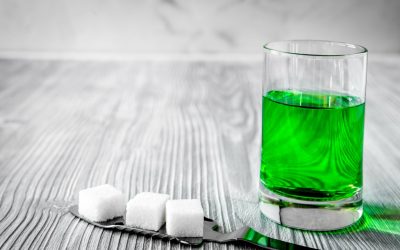The symptoms can range from mild to severe, and can potentially be life-threatening in rare cases. Drinking alcohol with allergies may increase symptom severity, as alcohol can cause blood vessels to expand, leading to nasal congestion. It may also interact negatively with allergy medications, causing drowsiness, dizziness, or more serious side effects. On top of those reasons, the individual may have an alcohol intolerance.
Can sneezing after drinking alcohol be a sign of an underlying medical condition?

Treatment for alcoholic hepatitis usually involves lifestyle changes such as abstaining from alcohol, eating a healthy diet and exercising regularly. This will allow for those with a https://empleo.grupoalyan.com/prescription-drug-abuse-from-epidemiology-to/ sensitivity to histamines to make informed decisions about what wines they can safely drink. Alcohol-induced sneezing can occur even without having an alcohol allergy. It is best to consult a healthcare professional for a proper diagnosis if you suspect an alcohol allergy. There is no definitive evidence to suggest that chocolate sneezing is more common in men or women.
Do certain foods give you an itchy mouth? Learn how to solve Oral Allergy Syndrome
If you have ever experienced sneezing after consuming alcohol, you might be wondering why this peculiar phenomenon occurs. While it may seem perplexing, there is a simple explanation for this reaction. Grapes, wheat, hops, and gluten may be present in the alcoholic beverage, which is causing the problems, instead of the reasons mentioned above.
For Loved Ones: How to Support a Loved One’s Mental Health
If you experience any of these reactions why does beer make me sneeze after drinking red wine, it could be a sign that you are intolerant or allergic to alcohol. It is important to consult with your doctor for an accurate diagnosis and appropriate treatment. If your symptoms are caused by sinus problems, you may need to see an allergist or immunologist for tests and treatments. Certain medications and foods can also trigger alcohol intolerance, as they can interfere with the body’s ability to process alcohol.
Other Culprits: Ingredients and Additives

Some of these chemicals can stimulate the production of histamines, which can lead to sneezing. To avoid this situation, it is important to drink wines with a flavor that does not cause an allergic reaction in the body. Some people with asthma find that their breathing is affected when they drink alcohol. Alcohol causes an increased permeability in cells, making it easier for undigested particles to enter the bloodstream and causing inflammation. While there are no specific home remedies for alcohol-induced sneezing, individuals may find relief by using Sober living house saline nasal sprays or performing nasal irrigation to soothe nasal passages.
- However, anyone can experience this phenomenon, regardless of their medical history.
- These include proteins, enzymes, dairy products, molds, and ingredients used in the production of wine.
- When you consume coffee, especially if it’s hot or contains strong aromas, it can lead to a reflex action in your body.
It’s essential to note that while coffee may trigger sneezing in some individuals, similar reactions can occur with many other substances and food items. This suggests that the act of sneezing after consuming coffee may not be solely due to the beverage itself but could be a cumulative response to various factors. While it’s difficult to completely prevent alcohol-induced congestion, you can try moderation or avoiding alcohol altogether. Staying hydrated and choosing lower-congener alcoholic beverages may also help reduce symptoms.
Why Does Chocolate Make Me Sneeze?

This reaction can be puzzling and uncomfortable, particularly if it occurs frequently. This comprehensive article explores the reasons why some people may sneeze after drinking beer, the underlying mechanisms, and potential ways to manage or prevent this reaction. It happens if your ALDH2 enzymes (remember those?) aren’t particularly effective at their job, or if your body just doesn’t make enough ALDH2 enzyme in the first place. In either case, the result is less acetaldehyde being broken down into acetate. If someone believes they have an alcohol allergy or intolerance, they should stop drinking alcoholic drinks and visit their healthcare provider for testing and advice. Sulfites are preservatives, and most countries permit their addition to alcoholic drinks such as beer and wine.
Understanding the root cause can shed light on this perplexing phenomenon and potentially offer ways to manage or even avoid these chocolate-induced sneezing fits. This article will explore the science behind this curious affliction, delving into the potential triggers, related conditions, and strategies for relief. When you take a sip of alcohol, your body triggers a reaction in which your blood vessels widen and blood flow increases. As a result, the nerve endings in your nasal passages become more sensitive.
Alcohol can exacerbate a variety of allergy symptoms, including nasal congestion, runny nose, sneezing, itchy eyes, skin rash, and difficulty breathing. These effects can be particularly disruptive for individuals dealing with sleep and respiratory-related allergies. Those “beer sneezes” do not mean you are officially drunk any more than the lack of sneezes mean you are okay to drive. Problems in the immune system cause an alcohol allergy to develop, while genetic problems in the digestive system tend to cause alcohol intolerance. Some individuals might be allergic to coffee beans or the compounds contained within them.